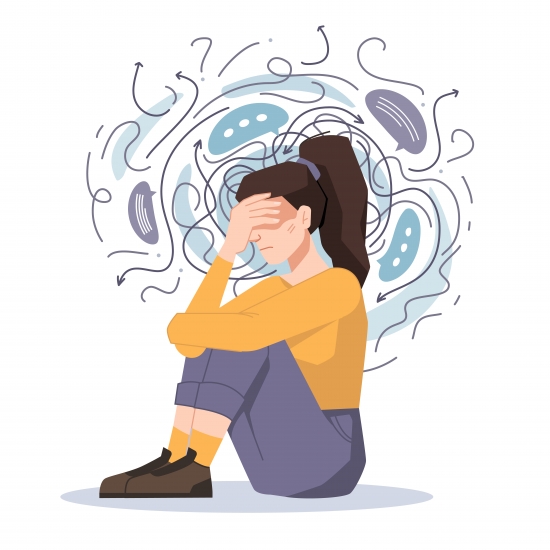Introduction
Post-Traumatic Stress Disorder (PTSD) is a topic that deserves our attention and understanding. In this article, we delve deep into the world of PTSD, shedding light on its various aspects, from its definition and causes to coping strategies and recovery. We'll navigate this sensitive subject with empathy, providing valuable insights based on real experiences and credible sources. Let's embark on this journey of understanding and healing.
What is Post-Traumatic Stress Disorder (PTSD)?
Post-Traumatic Stress Disorder, often abbreviated as PTSD, is a mental health condition that can develop in individuals who have experienced or witnessed a traumatic event. This disorder can affect anyone, regardless of age, gender, or background. It's essential to understand that PTSD is not a sign of weakness; rather, it's a natural response to an unnatural event.
The Impact of PTSD on Mental Health
Living with PTSD can be incredibly challenging, as it can have a profound impact on an individual's mental health. People with PTSD may experience symptoms like flashbacks, nightmares, severe anxiety, and even suicidal thoughts. It's crucial to address these issues promptly and with compassion.
Common Causes of PTSD
PTSD can stem from various traumatic experiences, such as combat, accidents, natural disasters, or interpersonal violence. Understanding the root causes is the first step in dealing with this condition effectively.
Recognizing the Symptoms
Recognizing the symptoms of PTSD is essential for early intervention. Symptoms can vary widely but often include re-experiencing the trauma, avoiding reminders, negative changes in mood and thoughts, and heightened reactions.
Seeking Professional Help
Recovery from PTSD often involves seeking professional help. Therapists, psychiatrists, and support groups can provide the necessary guidance and support for individuals on their journey to healing.
Treatment Options
Various treatment options are available for PTSD, including psychotherapy, medication, and alternative therapies like EMDR (Eye Movement Desensitization and Reprocessing). Tailoring the treatment to the individual's needs is key to successful recovery.
Coping Strategies
Learning healthy coping strategies is vital for managing PTSD. Techniques such as mindfulness, deep breathing exercises, and maintaining a strong support system can make a significant difference.
Support Systems for Healing
Having a support system in place is crucial for those dealing with PTSD. Friends and family play a pivotal role in providing emotional support and understanding.
PTSD in Veterans
Veterans often face unique challenges when dealing with PTSD. Their experiences in combat zones can lead to severe trauma, and it's essential to address their specific needs.
PTSD in Children and Adolescents
Children and adolescents can also develop PTSD after experiencing trauma. Recognizing the signs and providing age-appropriate support is essential for their well-being.
The Road to Recovery
Recovery from PTSD is possible. It's a journey that may have its ups and downs, but with the right help and support, individuals can heal and regain control of their lives.
Personal Stories of Triumph
Real-life stories of individuals who have successfully overcome PTSD serve as beacons of hope. These stories illustrate that healing is possible, even in the face of immense adversity.
FAQs about PTSD
What is the main cause of PTSD?
The main cause of PTSD is exposure to a traumatic event, such as combat, assault, accidents, or natural disasters.
How is PTSD diagnosed?
PTSD is typically diagnosed by mental health professionals who evaluate an individual's symptoms and history.
Can PTSD go away on its own?
While some people may experience a reduction in symptoms over time, professional treatment is often necessary for lasting recovery.
Is PTSD common in children?
Yes, children can develop PTSD after traumatic experiences, and it's essential to provide appropriate support and intervention.
What are the long-term effects of untreated PTSD?
Untreated PTSD can lead to severe mental health issues, substance abuse, and strained relationships.
Can PTSD be prevented?
Preventing PTSD entirely may not be possible, but early intervention and support can reduce its impact.
Conclusion
In conclusion, Post-Traumatic Stress Disorder (PTSD) is a complex condition that can affect anyone who has experienced trauma. Recognizing the symptoms, seeking professional help, and building a strong support system are crucial steps toward healing. Remember that recovery is possible, and there is hope for a brighter future.












